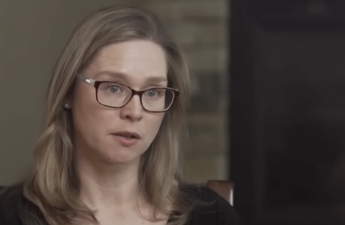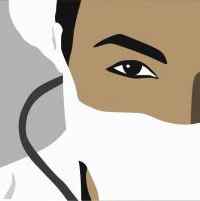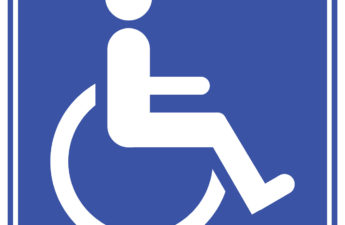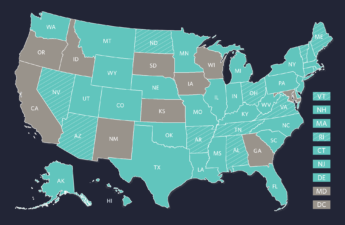Category: Doctors
Do implicit bias trainings on race improve health care?
There is increasing evidence that implicit bias – non-conscious attitudes toward specific groups – is a source of racial inequities in certain aspects of health care, and lawmakers are taking note.
The ‘doctor of nursing practice’ will see you now
Amid a shortage of doctors and an explosion in the number of nurse practitioners with doctorates, many nursing groups are pushing to expand what nurses can do without physicians’ supervision. Physicians, meanwhile, are pushing to keep nurse practitioners and physician assistants under their oversight, arguing that giving more autonomy to providers with less rigorous training could put patients at risk.
Modern medicine has its scientific roots in the Middle Ages
How the logic of vulture brain remedies and bloodletting lives on today
Doctors Emerge as Political Force in Battle Over Abortion Laws in Ohio and Elsewhere
Doctors who previously never mixed work with politics are jumping into the abortion debate by lobbying state lawmakers, campaigning, forming political action committees and trying to get reproductive rights protected by state law.
In the “Wild West” of Outpatient Vascular Care, Doctors Can Reap Huge Payments as Patients Risk Life and Limb
To move vascular procedures out of expensive hospitals, the government turbocharged payments to doctors’ offices. Instead of saving money, it started a boom that is making doctors rich and putting patients in danger.
After Idaho’s Strict Abortion Ban, OB-GYNs Stage a Quick Exodus
Later this month, the hospital, founded in 1949 near the shores of Lake Pend Oreille, will stop providing services for expectant mothers, forcing patients across northern Idaho to travel at least an additional hour for care. In June, a second Idaho hospital, Valor Health, in the rural city of Emmett, will also halt labor and delivery services. Those decisions came within months of Idaho’s abortion ban, one of the nation’s strictest.
Unconscious biases continue to hold back women in medicine, but research shows how to fight them and get closer to true equity and inclusion
Implicit bias is any unconscious negative attitude a person holds against a specific social group. These unconscious biases can affect judgment, decision making and behavior. Implicit bias is often one of the underlying issues that leads to discriminatory practices or harassment that diversity, equity and inclusion policies are meant to address.
Doctors Are Disappearing From Emergency Rooms as Hospitals Look to Cut Costs
This staffing strategy has permeated hospitals, and particularly emergency rooms, that seek to reduce their top expense: physician labor. While diagnosing and treating patients was once their domain, doctors are increasingly being replaced by nurse practitioners and physician assistants, collectively known as “midlevel practitioners,” who can perform many of the same duties and generate much of the same revenue for less than half of the pay.
For Many Disabled Patients, the Doctor Is Often Not In
In one study, only 56 percent of doctors strongly welcomed patients with disabilities into their practice. Less than half were confident or very confident that they could provide the same quality of care to people with disabilities as they could to other patients.
How primary care is poised to support reproductive health and abortion in the post-Roe era, UW doctors say
Emily M. Godfrey, University of Washington and Adelaide H. McClintock, University of Washington Just over a month after the Supreme Court struck down 50 years of federal protection of abortion rights in the U.S., at least 43 abortion clinics in…
An online life coaching program for female physicians decreases burnout, increases self-compassion and cures impostor syndrome, according to a new study
The doctors who participated in this program went from highly to only mildly burned out, while their peers who were not in the program became even more burned out.
Frustrated With Delays, Doctors Take Aim at Prior Authorization
Doctors have long asserted that prior authorization — the need to get approval from the patient’s insurer before proceeding with treatment — causes delays that can hurt patient care. Prior authorizations also exact a toll on doctors, who say the paperwork has gotten out of hand.
‘Almost Like Malpractice’: To Shed Bias, Doctors Get Schooled to Look Beyond Obesity
Research has long shown that doctors are less likely to respect patients who are overweight or obese, even as nearly three-quarters of adults in the U.S. now fall into one of those categories.
Doctors Trained Abroad Want to See You Now
A handful of states are easing certain licensing requirements, creating programs for foreign-trained doctors to work alongside U.S.-trained ones, reserving residency spots for immigrant health workers and providing help, sometimes including financial aid, for those working to get a U.S. license. States hope the efforts can not only get medical providers to more places where they are needed—particularly underserved rural and urban areas—but also lead to more professionals who speak the same language as and are culturally attuned to those they treat in an ever more diverse America.
States Likely to Resist CDC Proposal Easing Opioid Access
For the eased guidelines to have their intended effect, states would need to amend or repeal existing statutes that limit opioid prescriptions to three to seven days and set ceilings on the daily dose doctors can prescribe.












